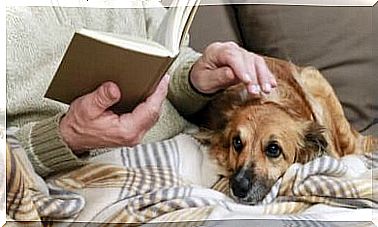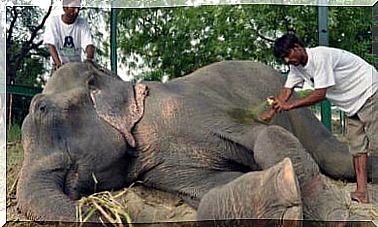Senile Dementia In Cats: Symptoms And Treatment
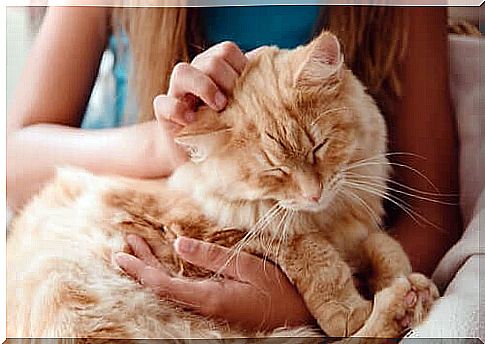
Like humans, cats can also be affected by neurodegenerative diseases with age. Senile dementia in cats is more common than we think, and sometimes we don’t have enough information to treat it properly.
Characteristic par excellence of cats is undoubtedly their strong personality, an aspect that changes radically if the animal suffers from a neurodegenerative disease.
The problem is that, being a condition that gradually affects the animal, we do not notice it immediately and often associate it with a simple change in character.
How to recognize senile dementia in cats
Cats are inherently independent animals, and when they start suffering from dementia they become more solitary. This happens because their mind is unable to clearly understand what is happening around them.
It is rare for this disorder to occur in cats less than 15 years of age and the most obvious symptom is the animal’s partial loss of its ability to learn. It will be difficult for him to even follow basic rules he has followed all his life, such as toileting in the litter box.
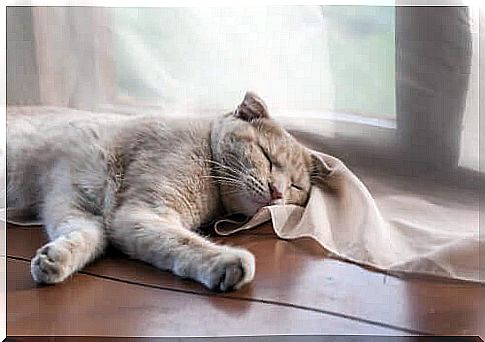
Motor coordination is also severely compromised by senile dementia, so the cat will lose the elegance and delicacy that distinguished it when young. It may also fail to calculate distances when jumping and falling, which rarely happens to a healthy cat.
Treatment of senile dementia in cats
There are no medicines capable of stopping the course of the disease, the only option is therefore to follow a therapy aimed at curbing the decline caused by the disease.
In fact, not all cats can take these medications, and only a veterinarian can determine if the animal can begin treatment to slow senile dementia.
In addition to medical solutions, the owner can also make life easier for their cat. For example, if his favorite place to sleep is at a certain height, he can put something to help him climb.
He will also notice that the cat is less clean than before. Cats take care of their hygiene from an early age and are always perfectly clean and combed thanks to the hours they dedicate to their cleaning.
However, due to senile dementia, it is impossible for the animal to engage in this activity with the same enthusiasm, which is why the owner will have to take care of its hygiene.
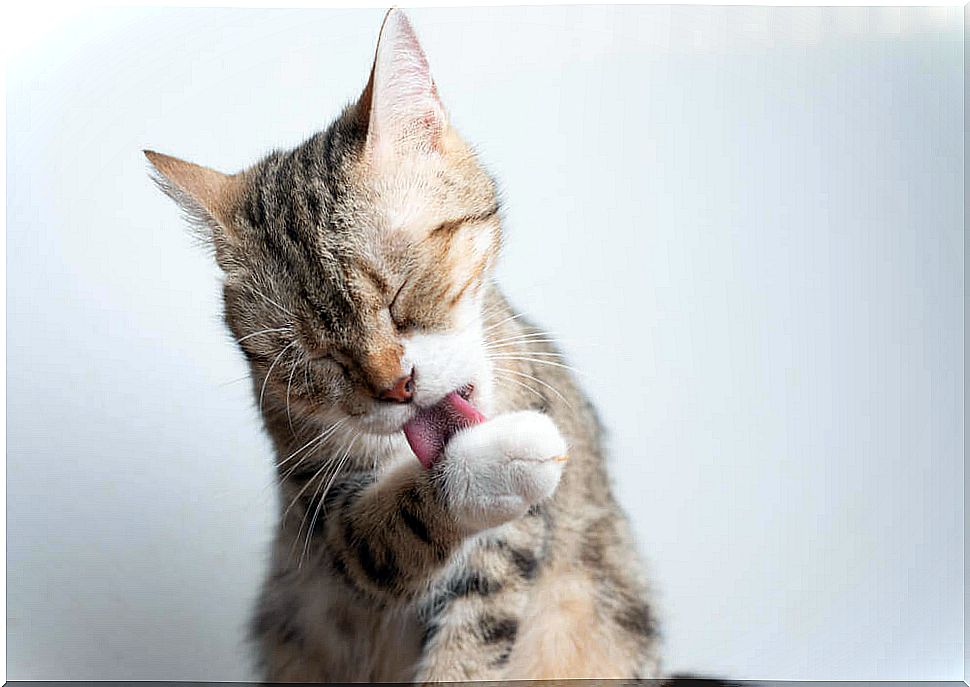
Energies in a cat with senile dementia
Games and social activities take a back seat for an elderly cat, even more so if he suffers from senile dementia. It is easy to see him sleeping for over 15 hours a day, which is not at all alarming. Letting it rest is very important.
Sometimes, however, the animal feels helpless to notice that its physical abilities fail. In some cases this will lead him to develop a greater dependence on the owner, who will follow throughout the house in search of affection.
Some cats meow in search of attention making a sound very similar to that of males in heat; in reality, they just ask for a few caresses.
In the most extreme cases, that is when the senile dementia in the cat is at an advanced stage, you may see him disoriented or walking around the house. He is probably looking for the litter box or food, but due to illness he does not remember where they are.
What to remember
This behavior is very similar to that shown by humans suffering from the same neurodegenerative disease.
Senile dementia in the cat does not cause severe trauma in the animal that does not understand what is happening because its levels of consciousness are lowered. It just needs the love and attention it needs to still be a happy pet.






